Is Black Peppercorn the Same as Black Pepper? A Spicy Showdown!
If you've ever stood in your kitchen, squinting at a recipe that says "black pepper" and wondered if that bottle of black peppercorns is really the same thing—congratulations, you're not alone. Welcome to the spicy showdown we never knew we needed: Black Peppercorn vs. Black Pepper. Are they twins separated at birth, or just distant cousins who kind of look alike?
What Exactly Is a Black Peppercorn Anyway?
Let’s start with the basics. Black peppercorns are the dried, unripe fruit of the Piper nigrum plant. Yes, you read that right—they’re technically fruits (even though we treat them like spices). Once harvested, these little berries are sun-dried until their outer layer turns black and shriveled.
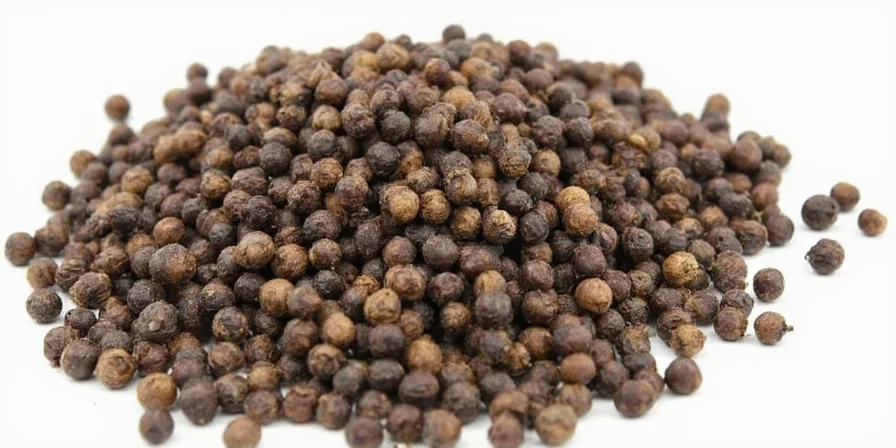
These tiny, aromatic powerhouses pack a punch thanks to a compound called piperine, which gives black pepper its signature bite. So when you buy black peppercorns, you’re getting the raw, unground form of black pepper.
And Then There's Ground Black Pepper
Once those black peppercorns get tossed into a grinder, spice mill, or mortar and pestle, they become what we commonly call ground black pepper.
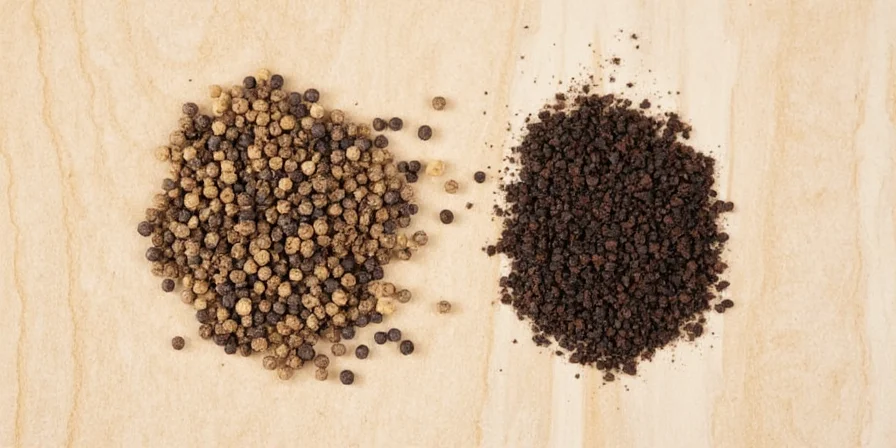
So technically speaking, yes—ground black pepper is made from black peppercorns. But there are some key differences in flavor, aroma, and shelf life between the two forms.
Head-to-Head Comparison: Peppercorn vs. Ground Pepper
| Feature | Black Peppercorn | Ground Black Pepper |
|---|---|---|
| Form | Whole dried berries | Dried powder |
| Flavor Intensity | Fresher, more vibrant | Milder over time |
| Aroma | Stronger and spicier | Weaker, fades quickly |
| Shelf Life | Years if stored properly | Loses potency within 6–12 months |
| Best For | Grinding fresh, infusions, pickling | Everyday seasoning |
The Great Spice Myth Busting
Myth #1: All Black Pepper Is Made Equal
Busted: Not all black pepper is created equal. Just like wine, coffee, or chocolate, the quality of black pepper can vary depending on where it’s grown, how it’s processed, and how long it’s been sitting on the shelf.
Myth #2: You Can’t Substitute One for the Other
Busted: Of course you can! If a recipe calls for ground black pepper and you only have peppercorns, grab your grinder. Conversely, if a recipe says “black peppercorns” and all you’ve got is ground pepper, use about ¾ the amount of ground pepper.
Myth #3: Ground Pepper Lasts Forever
Busted: Sorry, but once pepper hits the grinder, its clock starts ticking. The essential oils and piperine begin to evaporate, leaving behind a bland shadow of its former self. Freshly ground = best flavor.
Pro Tips for Using Black Peppercorns and Black Pepper Like a Boss
- Buy Whole Peppercorns: They stay fresher longer. Grind only what you need.
- Upgrade Your Grinder: Cheap grinders don't do justice to good pepper. Invest in a quality mill or pestle setup.
- Toast Peppercorns First: For extra depth of flavor, toast whole peppercorns in a dry pan before grinding.
- Add at the End: Piperine is volatile, so adding pepper toward the end of cooking preserves its flavor better.
- Make Your Own Spice Blends: Combine black peppercorns with other spices like coriander, cumin, and fennel seeds for custom blends.
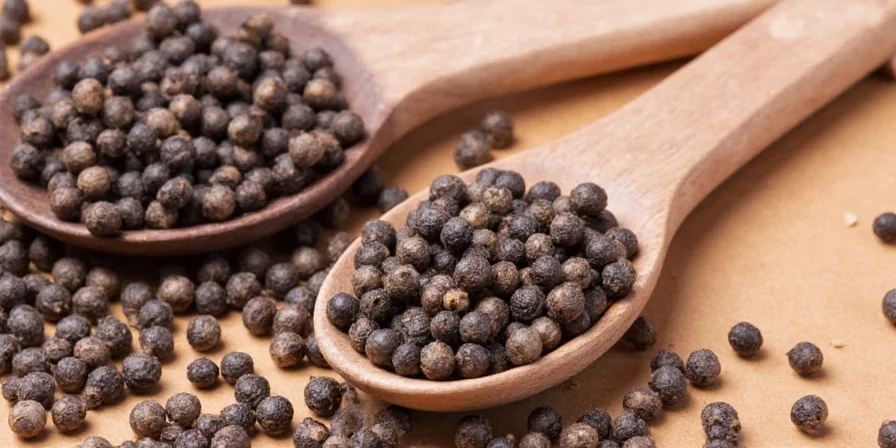
When to Use Each Form: Practical Examples
Knowing when to use black peppercorns versus ground black pepper can take your dishes from decent to divine. Here’s a quick guide:
Use Whole Peppercorns When:
- You want a slow release of flavor in stocks or soups
- Infusing vinegar or brines for pickling
- Curing meats like corned beef
- Adding texture to dishes like Tellicherry pepper steak
Use Ground Black Pepper When:
- Seasoning scrambled eggs or mashed potatoes
- Mixing into sauces, dressings, or marinades
- Spicing up popcorn, roasted vegetables, or buttered pasta
- Adding heat to baked goods or desserts with a savory twist
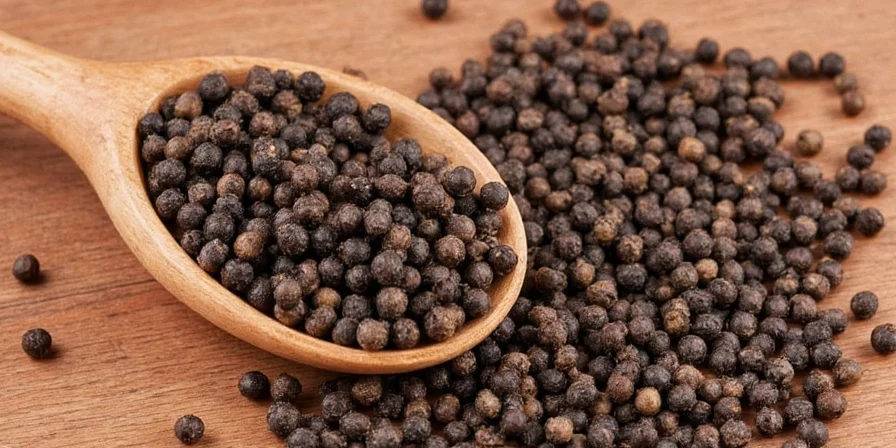
Spice Science: Why Freshness Matters
Ever wonder why restaurant food tastes so much more flavorful than your home-cooked meals? Part of the secret lies in their spice drawer—or rather, their grinder. Freshly ground black pepper has a sharper, more complex flavor profile than pre-ground pepper because it retains more volatile compounds.
In fact, studies show that ground pepper loses up to 40% of its aromatic compounds within six months. That dusty bottle of pepper in your cabinet might still add heat, but it won’t bring the depth of flavor that freshly cracked pepper does.
Spice It Up: Fun Fact Friday!
- Black pepper was once called 'black gold.' In ancient times, it was used as currency and even paid as tribute.
- Vincent Price loved pepper so much, he once narrated an entire audio tour of a pepper plantation.
- Black pepper helps your body absorb nutrients better, especially curcumin—the active ingredient in turmeric.
- Some peppercorns are actually green or white. Green peppercorns are underripe; white peppercorns are fully ripe with the outer shell removed.
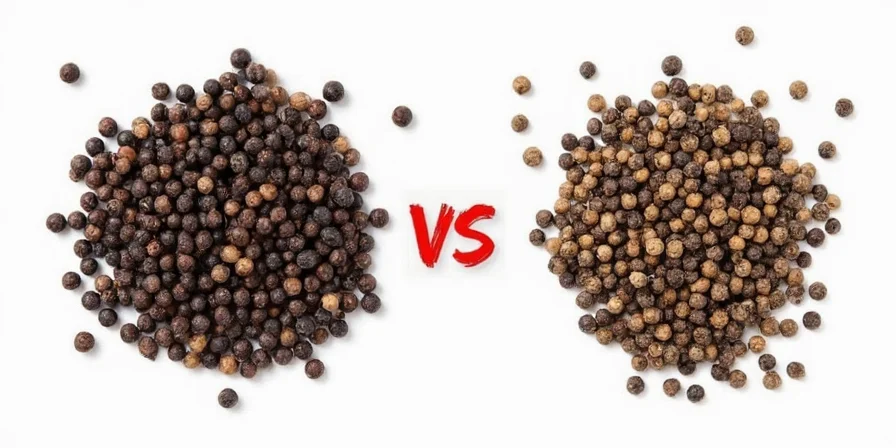
Final Verdict: Twins or Just Look-Alikes?
Yes, black peppercorns and black pepper come from the same source—but they’re definitely not exactly the same. Think of it like this:
- Black peppercorns are the raw, concentrated version—like a chef’s secret weapon.
- Ground black pepper is the everyday MVP, always ready for action but less intense over time.
Conclusion
So is black peppercorn the same as black pepper? Technically, yes. Practically? Well, that depends on what you’re making and how serious you are about flavor.
If you're a casual cook, ground black pepper will do just fine. But if you're looking to elevate your culinary game, keep a stash of whole black peppercorns nearby and grind them fresh whenever possible.
Remember: great spice comes from knowing the difference—and using each form at the right moment. Now go forth, season boldly, and may your pantry forever be fragrant.

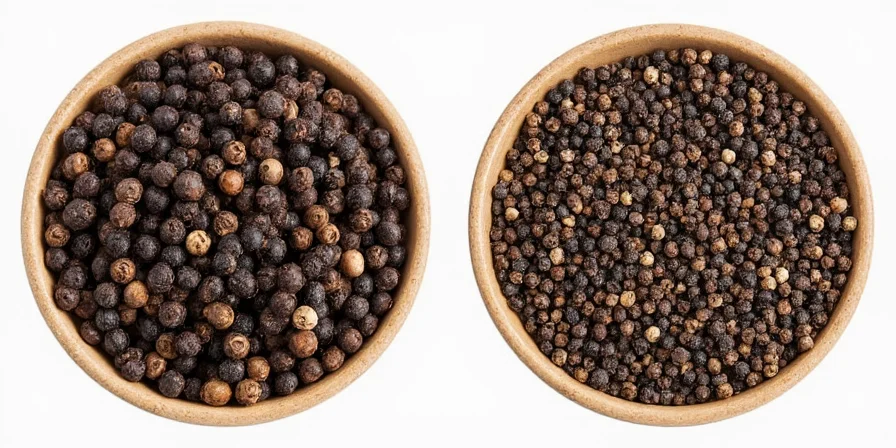









 浙公网安备
33010002000092号
浙公网安备
33010002000092号 浙B2-20120091-4
浙B2-20120091-4